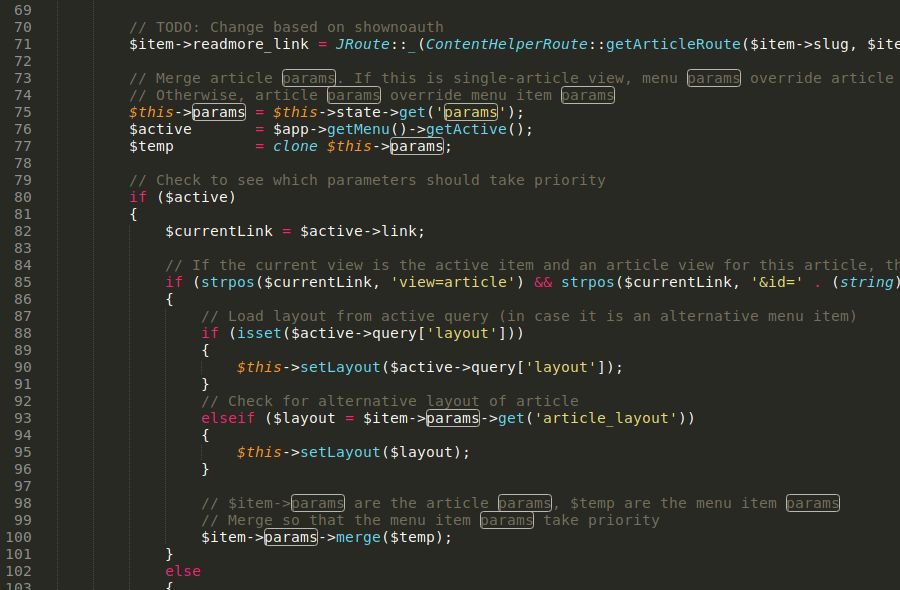Almost every component in Joomla! ships with a set of parameters (or, params). Using the “Options” button, we can easily alter the params values of a component. What if we want to change the values of some parameters programmatically, i.e., using Joomla! codes.
Let’s do it step by step.
1. Load component params.
$comparams = JComponentHelper::getParams('com_news');
2. Set a new value to one or more parameters.
$comparams->set('lastcreatedate', $data['created']);
We have just set a new value to a parameter named “lastcreateddate”. To test if it’s set properly, use var_dump to view it.
var_dump($comparams);
You should see this output:
object(Joomla\Registry\Registry)#151 (1) {
["data":protected]=> object(stdClass)#10 (1) {
["lastcreatedate"]=> string(10) "2014-08-15" }
}
3. Now it’s time to save the whole component params with our new values back to the database. Now, we shall find our component’s ID from the “#__extensions” table. The following piece of code will return the component ID of the “com_news” component from the “#__extensions” table:
$componentid = JComponentHelper::getComponent('com_news')->id;
4. To save our data, we shall take an instance of the “#__extension” table using the JTable class and load component data by component ID, ie., $componentid variable.
$table = JTable::getInstance('extension');
$table->load($componentid);
5. We shall bind the “params” field with new values:
$table->bind(array('params' => $comparams->toString()));
6. Well, we have bound the “params” field of the “#__extensions” table with new values. Next, we shall push the data to the database after a regular check for errors (if any).
// check for error
if (!$table->check()) {
$this->setError('lastcreatedate: check: ' . $table->getError());
return false;
}
7. Finally, save to the database:
// Save to database
if (!$table->store()) {
$this->setError('lastcreatedate: store: ' . $table->getError());
return false;
}
If everything goes right, the components’ new parameters should save to the database successfully. Is it really? Let’s examine it by loading the params and running the var_dump function again.
$comparams = JComponentHelper::getParams('com_news');
var_dump($comparams);
You should now see the new value in the output on the screen.
I have applied this technique in my component development. It may not be the ‘best practice’, but it works. Hope this will work in your case too.


Leave Your Comment